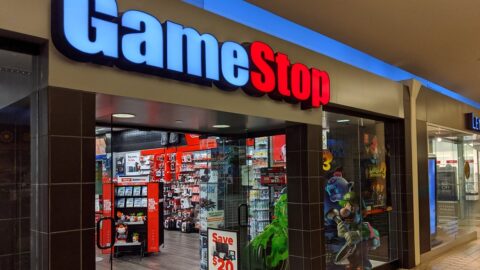After months of seeking a buyer, GameStop has ended its attempt to sell the company. The Board of Directors determined there was not enough available financing on terms a prospective buyer would accept.
Private equity firms Sycamore Partners and Apollo Global Management had been among the groups initially expressing interest in taking the 7,000+-store retailer private, but neither made a bid. Despite being one of the brick-and-mortar retailers in the U.S., the video game retailer has struggled with its relevance in an era of digital game sales, even as it made a push into the collectibles business.
The Board’s decision has sent GameStop stock in a freefall — down more than 27% by noon ET on Jan. 29.
While the company remains in limbo, so does its leadership. GameStop is working with an executive search firm to find a permanent CEO, which it hasn’t had since Michael Mauler resigned in May 2018. Shane Kim, a member of GameStop’s board since 2011 and a former Microsoft executive, has served as interim CEO since then.
The retailer recently completed the sale of its Spring Mobile business of 1,289 AT&T wireless stores for approximately $735 million, officially exiting the mobile phone and services industry it had entered into only five years prior. The Board is still evaluating where to use the cash, which could include reducing the company’s debt; funding buybacks; reinvesting in core video game and collectibles businesses to drive growth; or a combination of these options.
Although the company had high hopes for expansion after acquiring retailers such as Spring Mobile, Simply Mac and three other AT&T-authorized wireless retailers, the cellular business (labeled Technology Brands) actually lost $316 million in 2017, and total Technology Brands sales decreased 14.2% to $219.7 million. To start off 2018, GameStop sold off all 65 Cricket Wireless stores it owned and discontinued sales of Cricket products in GameStop stores.
Overall, 2018 was a difficult year for GameStop, starting with the death in March of longtime CEO J. Paul Raines. Mauler, the veteran executive who replaced Raines upon his departure in February, resigned three months later for “personal reasons.” During Mauler’s tenure, COO Tony Bartel and EVP Michael Hogan were fired, while CIO Michael Cooper and CMO Randy Gier left the company voluntarily.











